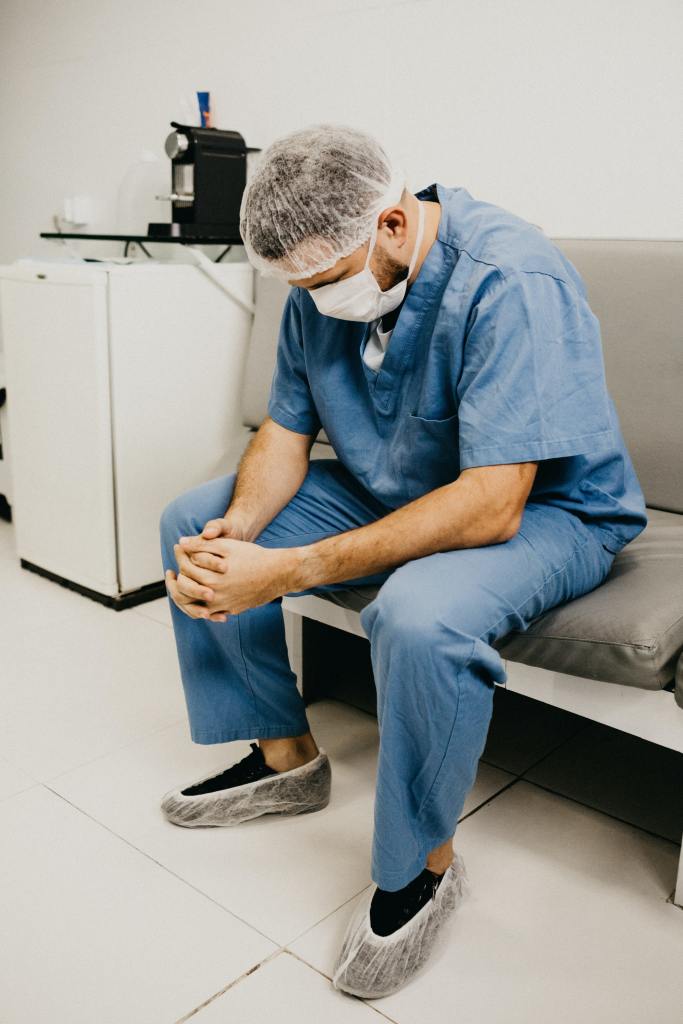The staffing challenge in healthcare has gone from something that affected a small number of organizations to a crisis that now grips the entire industry around the globe. From London to New York to Toronto to Cape Town – there are news stories about the lack of nurses, physicians, personal care workers, EMTs and technicians.
This crisis has gotten so acute that healthcare providers have had to cancel “elective surgeries” not because of concerns over the coronavirus, but because of a lack of staff to perform the procedure. This is even happening in the US where healthcare capacity has never been a significant issue.
What’s causing this staff crunch? There are a number of factors including:
- The spread of Omicron which has infected a large number of healthcare workers who have to isolate at home before returning to work
- Healthcare workers leaving their professions
- Healthcare workers finding better career options in other parts of the healthcare system (ie: not a provider)
Things have gotten so bad in my home province of Ontario that the government made the move to allow foreign-trained nurses to practice under the supervision of registered nurses – something that has been avoided in the past.
Patients Suffering
What is sometimes lost in all the coverage on the staffing crisis is the impact this is having on patients. I think it is disingenuous to call a hip-replacement surgery for someone suffering debilitating pain, an “elective procedure”. The same applies to a biopsy to determine if a cancer has spread.
Unfortunately, that is exactly what is happening around the world.
One of the things I wish healthcare leaders would talk about is how to best triage these patients when spots become available. A first-in, first-under-the-knife approach may be the least controversial, but it may also mean negative outcomes for patients in dire situations. Can we/should we consider reviewing patient cases to ensure those that need care the most, get it first? Or is this so wholly unpalatable that it simply isn’t an option? Or are hospitals already doing this quietly so as not to draw the ire of those who are made to wait?
I honestly don’t know what is happening, which is why I’m keenly interested to hear from the HCLDR community.
No Easy Fix
Sadly, there does not seem to be an easy fix for this crisis. The strain of the past 2 years and the rising tide of anti-healthcare sentiment is not something that can easily be erased. No signing bonus or pay increase is going to suddenly bring back droves of healthcare workers.
So what are potential solutions to this staffing crisis? Do we just cross our fingers and hope that as COVID wanes, healthcare workers will return and capacity bounces back to normal? Or does healthcare need to take more radical action to address the staffing crisis?
Join us Tuesday February 8th at 8:30pm ET (for your local time click here) when we will discuss the impact of healthcare’s staffing crisis:
- T1 In your opinion, what are the factors that are driving healthcare workers away from the profession – especially the ones that the media AREN’T talking about?
- T2 Have you, someone you know or a healthcare organization you have visited been impacted by this staffing crisis? How?
- T3 Would it be fair to assess all the patients with delayed procedures and prioritize those that need it the most rather than using the booking date to determine the order?
- T4 What can healthcare do immediately to address this staffing crisis? What about long term?
Resources
Aboulenein, Ahmed. “Overwhelmed by Omicron surge, US hospitals delay surgeries”, Reuters, 7 January 2022, https://www.reuters.com/world/us/overwhelmed-by-omicron-surge-us-hospitals-delay-surgeries-2022-01-07/, accessed 6 February 2022
Bean, Mackenzie and Masson, Gabrielle. “ The less-discussed consequence of healthcare’s labor shortage”, Becker’s Hospital Review, 4 October 2021, https://www.beckershospitalreview.com/patient-safety-outcomes/the-less-discussed-consequence-of-healthcare-s-labor-shortage.html, accessed 6 February 2022
Gilchrist, Karen. “Covid has made it harder to be a health-care worker. Now, many are thinking of quitting”, CNBC, 30 May 2021, https://www.cnbc.com/2021/05/31/covid-is-driving-an-exodus-among-health-care-workers.html, accessed 6 February 2022
Adone, Dakin and Cullinane, Susannah. “Nearly a quarter of hospitals are reporting a critical staff shortage as Omicron drives a rise in Covid-19 cases”, CNN, 9 January 2022, https://www.cnn.com/2022/01/09/health/us-coronavirus-sunday/index.html, accessed 6 February 2022
Henry, Tanya Albert. “Medicine’s great resignation? 1 in 5 doctors plan exit in 2 years”, AMA, 18 January 2022, https://www.ama-assn.org/practice-management/physician-health/medicine-s-great-resignation-1-5-doctors-plan-exit-2-years, accessed 6 February 2022
Photo Credit
Photo by Jonathan Borba on Unsplash
